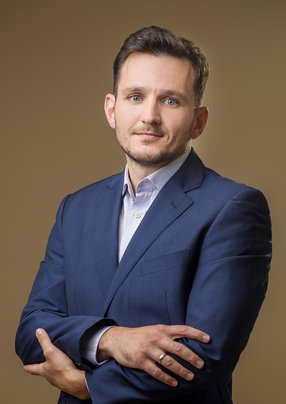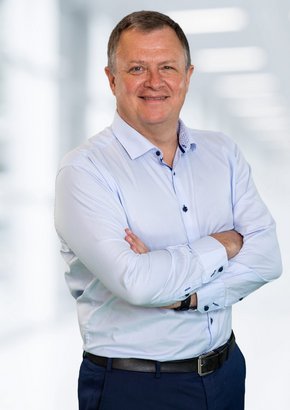
Georgi Lesov
Network Investment Manager at EXA Infrastructure

EXA Infrastructure owns and operates the most extensive dedicated infrastructure footprint connecting Europe and North America.
The digital infrastructure provider focusses on data-centre to data-centre interconnectivity, enabling core to edge data distribution and core to core connectivity across all major European data centre markets. Not only has EXA established a critical position in the key FLAP market, but it is also relied upon by data centres players throughout Europe’s emerging Tier II & Tier III markets, including the Iberian Peninsula, the Nordics, and Central, Southern and Eastern Europe.
Pravdomir Dobrev, Senior Product Manager, and Georgi Lesov, Network Investment Manager, outline the key role EXA plays in fostering data centre interconnectivity, and the importance of this strategic approach.
Driving scalable growth across Europe’s markets
The focus of Lesov’s team is on strategic network investments, with Lesov looking after the CEE and Nordic regions. Lesov is also responsible for overseeing data centre interconnectivity with a global lens.
Dobrev’s role is the management of the colocation product line and supporting EXA’s growth strategy in the colocation market space.
Since launch, EXA has connected - or is in the process of connecting - tens of new strategic data centres across Europe and North America, with the former spanning considerably beyond the region’s traditional markets.
“The dedicated data centre interconnectivity programme - which we launched a few months after the launch of EXA and is still ongoing today - enables us to take a more proactive approach to capital deployment, building into key strategic data centres ahead of customer orders, rather a game of “pin the cost on an anchor customer,” Lesov explains.
“We look at each data centre individually, by focusing on size (in terms of MW and floor space), power density, PUE, age of the facility, future scalability, and many other factors, which are all part of our due diligence process. Then, once a candidate site has made it to the shortlist, we execute within a few months, and bring the site online.”
EXA also proactively surveys its customers, to understand where they need their sites to be - not only today, but in one, three- and five-years’ time. EXA aims to be amongst the first movers in these locations. Operating in such a strategic way not only enables EXA to grow with its customers but it means EXA is also driving industry developments. “It’s a positive mutualism,” Lesov says.
As a direct result of the industry’s rapid pace of growth, traditional European markets are facing a critical challenge.
““In the traditional markets, particularly FLAP, there is still a large amount of growth (these cities dominate in terms of population and GDP) but this is also, obviously, where there is the greatest amount of legacy investment to capitalise, and hence competition”. Lesov states.
“We expect to see more capacity coming online throughout 2023. However, it’s important to note that other European markets are also growing considerably, with plenty of edge nodes to improve end-user experience as well as new interconnection points coming online – between continents. This will be a game changer for the industry over the next few years, in colocation and in connectivity” Dobrev explains.
In the case of more emerging markets - such as Southeast Europe and the Mediterranean – though, the situation is dramatically different. “It's more about who takes the risk and aspires to be the first mover, taking ownership in building routing diversity. It sounds like a cliché, but at EXA, we don’t just think about the future – we invest and work to create it” Lesov adds
Read the full story HERE.
Featured Interviews
“The vision behind the customer centric Supply Chain (SC) transformation programme, emphasised the potential for supply chains to contribute to the top line, in addition to the traditional bottom line.”






